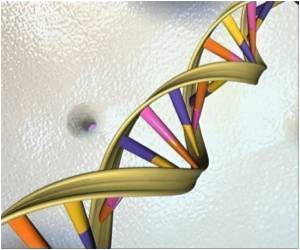Some of the most aggressive forms of cancer have genetic similarities, find new studies.

The research came as part of a vast program undertaken by the National Institutes of Health called the "Cancer Genome Atlas Project," which aims to decode the genetic pattern of 10,000 tumors from 20 different cancers.
Thanks to that analysis, scientists had already found genetic relationships between certain forms of breast, lung, and colon cancers.
For example, one type of breast cancer presents genetic mutations very similar to the ones found in ovarian cancer, and colon cancers often have mutations found in breast cancer.
The researchers said around half of all lung cancers could respond to treatments used against other kinds of tumors.
The latest study found the most aggressive form of endometrial cancer, which affects the uterine lining, is similar to more grave forms of breast and ovarian cancer.
Advertisement
Likewise, "HGSOC shares many similar molecular features with basal-like breast carcinoma," added the team, which was directed by Douglas Levine of Memorial Sloan Kettering Cancer Center, in New York.
Advertisement
Several drugs have already been developed to target the mutation. Now, thanks to the new data, such drugs can be harnessed against endometrial cancer, which kills 8,000 people, and is diagnosed in 50,000, each year.
The research on acute leukemia, which included 200 patients, identified at least 260 genetic mutations implicated in the blood cancer, but wasn't able to detect any that are systematically found in the most serious forms.
Acute myeloid leukemia, the most common acute leukemia found in adults, is diagnosed in 14,000 Americans each year and kills 10,000.
Source-AFP














